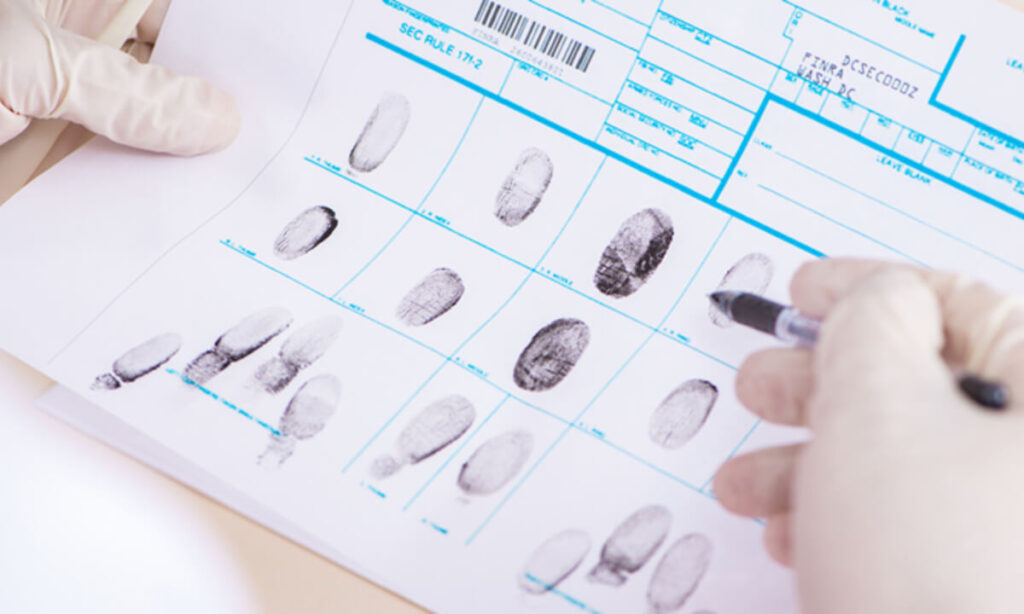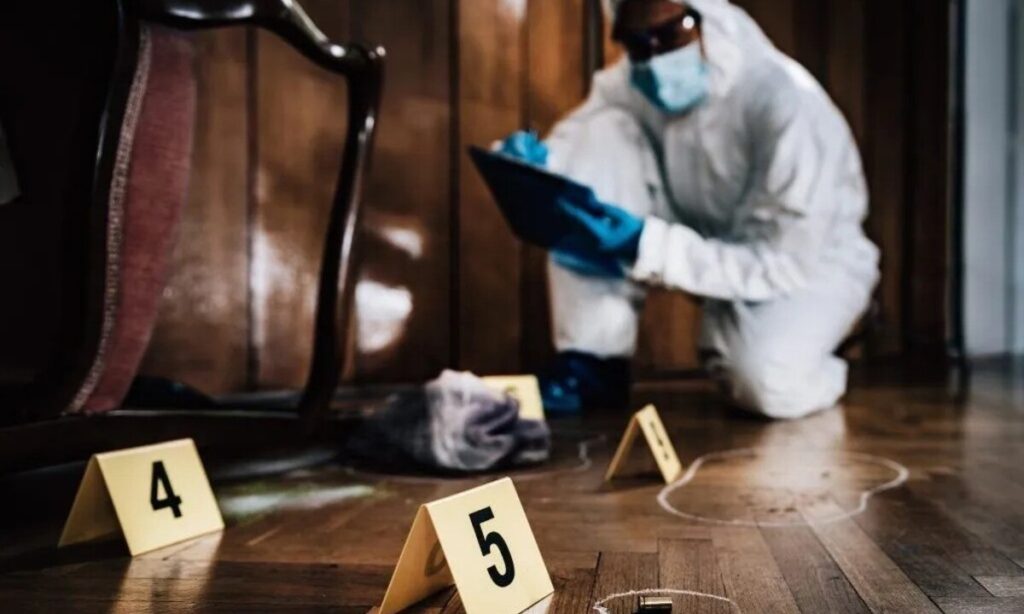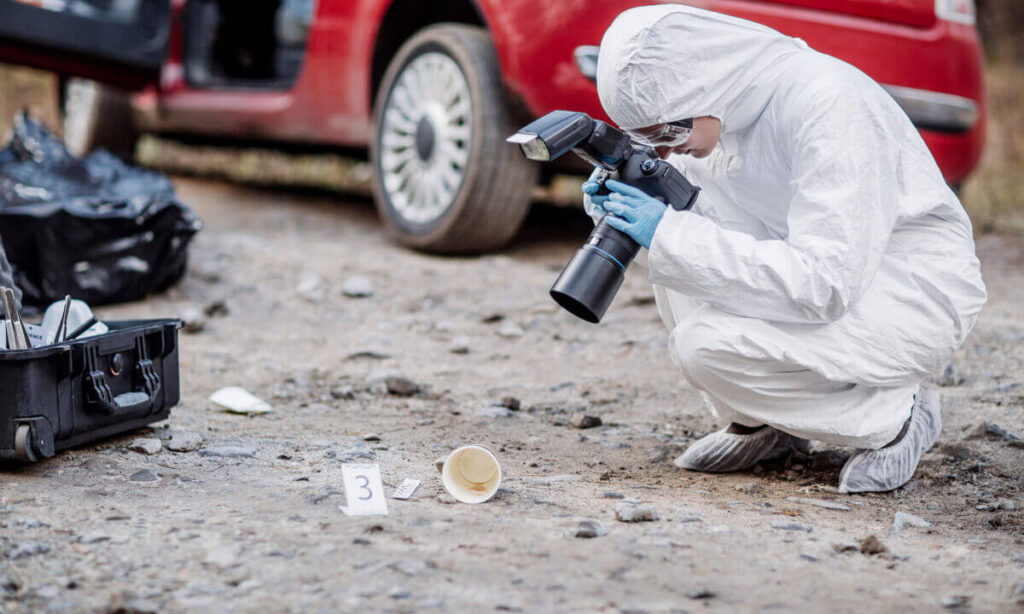One essential component of forensic science that is vital to criminal investigations is fingerprint analysis. Examining and comparing fingerprints left at crime scenes, identifying suspects, and giving expert testimony in court are all part of the job description of a fingerprint analyst. This in-depth manual will take you step-by-step through the process of becoming a fingerprint analyst, covering all the requirements in terms of knowledge, credentials, and career paths.
What Does a Fingerprint Analyst Do?
The main duty of a fingerprint analyst is to examine and contrast fingerprints taken from suspects or crime scenes. You will identify distinctive ridge patterns, minute details, and other features that help differentiate one fingerprint from another using a variety of methods and technologies. This analysis is essential for connecting specific people to criminal activity, assisting in the investigation of crimes, and helping victims receive justice.
You might also have to testify as an expert witness in court, giving your professional judgment on the authenticity and dependability of fingerprint evidence, in addition to analyzing fingerprints. Success in this position requires a solid grasp of the fundamentals of fingerprint analysis as well as the capacity to explain complicated concepts in an understandable manner.
Skills and Qualifications Required to Become a Fingerprint Analyst
You must meet certain requirements in order to be successful in the field of fingerprint analysis. Above all, it is important to pay close attention to detail because fingerprint analysis necessitates a careful inspection and comparison of ridge patterns. Additionally, you should have outstanding problem-solving abilities because every case may present different difficulties that call for creative solutions. A successful fingerprint analyst also needs to possess strong analytical skills, patience, and the capacity to function under pressure.
The majority of employers have educational requirements that call for a bachelor’s degree in chemistry, biology, forensic science, or a similar discipline. It is very helpful to take courses in criminal justice, forensics, and fingerprint analysis. A master’s degree or specific training in fingerprint analysis may also be necessary for some roles. It’s important to remember that getting real-world experience through internships or intensive training courses can greatly increase your chances of landing a position as a fingerprint analyst.
1. Education and Training
A strong educational background is required if you want to work as a fingerprint analyst. A bachelor’s degree in forensic science, chemistry, biology, or a similar discipline is typically required for the majority of jobs in this field. Anatomy, physiology, statistics, and criminal justice coursework will give you the information and abilities you need to succeed in this field. Enrolling in courses that are especially focused on fingerprint analysis, like latent fingerprint development and identification, is also beneficial.
It is highly recommended that you take advantage of research opportunities or internships to obtain real-world experience while pursuing your degree. You’ll be able to apply the concepts and methods you’ve learned in the classroom to actual circumstances thanks to these experiences. Working alongside seasoned fingerprint analysts and taking part in the analysis process may present an opportunity for you. This practical experience will help you better understand the field and open up important networking opportunities.
It is imperative that you obtain hands-on training in fingerprint analysis after completing your education. Aspiring fingerprint analysts can enroll in training programs specifically created for them by numerous forensic labs and law enforcement agencies. These courses usually combine didactic learning with hands-on practice to help you improve your abilities in fingerprint analysis, preservation, and collection. To acquire the required knowledge and show your dedication to the industry, it is imperative that you look for these training opportunities.
2. Certification
As a fingerprint analyst, you can greatly improve your career prospects and credibility by becoming certified, though it’s not always required. Numerous organizations provide certification courses that evaluate your proficiency in fingerprint analysis. You will normally be required to analyze and compare fingerprints in both a written exam and a practical test as part of these programs. The Certified Latent Print Examiner (CLPE), Certified Fingerprint Examiner (CFE), and International Association for Identification (IAI) Certification are a few of the respectable certification programs.
Obtaining certification increases your marketability as a candidate by showcasing your knowledge and dedication to the industry. Furthermore, accredited fingerprint analysts frequently earn more money and are more frequently asked to testify as experts in court. To guarantee its worth and applicability, it is crucial to investigate and select a certification program that is respected and acknowledged in the sector.
Career Opportunities in Fingerprint Analysis
In the realm of forensic science, a career as a fingerprint analyst can lead to many fascinating opportunities. The following are some possible career paths you may consider:
1. Law Enforcement Agencies
Numerous fingerprint analysts collaborate closely with law enforcement organizations, offering expert witness testimony in court and supporting criminal investigations. You will work together with detectives and other forensic experts in this capacity to put together evidence and assist in the resolution of challenging cases.
2. Government Agencies
Because of their expertise, government organizations like the Central Intelligence Agency (CIA) and the Federal Bureau of Investigation (FBI) frequently use fingerprint analysts. These positions could involve working on well-known cases, analyzing fingerprints for national security, or developing novel methods of fingerprint analysis.
3. Private Forensic Laboratories
Fingerprint analysts can also pursue careers in private forensic labs. Private investigators, law enforcement agencies, and legal firms are just a few of the clients these labs serve. Working on a variety of cases at a private forensic lab gives you the opportunity to acquire a broad range of experience.
Fingerprint Analyst Salary and Career Outlook
A fingerprint analyst’s pay may differ based on a number of variables, including location, level of experience, and hiring company. A fingerprint analyst’s annual salary ranges from $36,000 to $51,000 on average according to Glassdoor. However, the salary can exceed $100,000 annually with more experience, specialization, and higher positions. Fingerprint analysts have a generally bright future ahead of them due to the consistent need for skilled workers in the forensic science sector. Fingerprint analysts will likely become more in demand as technological developments continue to impact the field.
The Importance of Fingerprint Analysis in Criminal Investigations
Because fingerprints are distinct and permanent, fingerprint analysis is a crucial component of criminal investigations. Given their ability to create a connection between a suspect and the scene of the crime, fingerprints are among the most trustworthy types of evidence. Experts can identify people, rule out innocent parties, and assist in assembling a compelling case against the guilty by examining fingerprints. Fingerprint analysis has proven to be an essential tool in the pursuit of justice, helping to solve innumerable crimes ranging from thefts to homicides.
FAQs
Where Do Fingerprint Analysts Work?
Work environments for fingerprint analysts include government and law enforcement organizations, private forensic labs, and academic institutions. Their proficiency is essential in all situations where fingerprint analysis is required, including legal proceedings, national security investigations, and criminal investigations.
How Accurate is Fingerprint Analysis?
It is widely believed that fingerprint analysis is a very accurate form of identification. Fingerprints are a dependable type of evidence because of their permanence and uniqueness. However, the competence and experience of the analyst performing the examination ultimately determines how accurate the fingerprint analysis is. Maintaining accuracy in fingerprint analysis requires strict quality control procedures, constant training, and adherence to scientific standards.
Conclusion
A strong interest in forensic science, commitment, and education are necessary to work as a fingerprint analyst. A fulfilling career in fingerprint analysis can be yours if you follow the instructions provided in this guide. Never forget to improve your abilities, seek out relevant coursework, and look for chances to gain real-world experience. You can make a significant contribution to the field of forensic science and help solve crimes while making sure that justice is done if you are persistent and determined.
Did you find this article helpful? Check out this article on How To Become a Forensic Scientist: A Complete Guide. For more articles, check out our website. Thank you for reading!






